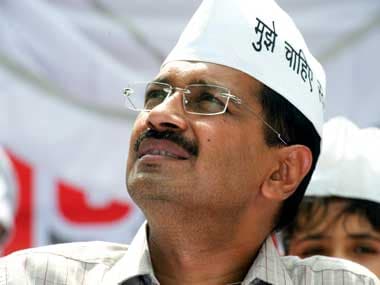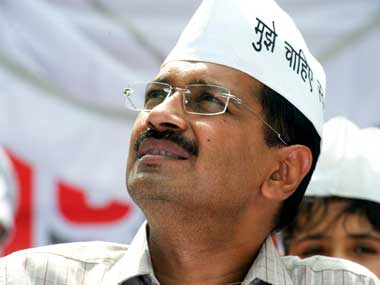Should the 21 AAP MLAs serving as parliamentary secretaries be disqualified? The answer is, yes. Should then 5 BJP MLAs in Gujarat, five BJP MLAs in Rajasthan and 25 MLAs in Punjab (20 Akali MLAs and 5 BJP MLAs) who are serving as parliamentary secretaries be also disqualified? The answer is again: an unqualified yes. Why is it then that only the parliamentary secretaries in Delhi are in the line of fire whereas the same office-holders in the three other states are not? It is because of a legal-technical issue: Gujarat, Rajasthan and Punjab being full-fledged states, the enactment made by their legislature in exempting the post of parliamentary secretary from disqualification under the ‘Office of Profit’ law is legally valid, but Delhi being a union territory a similar enactment by the Delhi legislature needs the approval of the president of India to acquire legal sanctity. As we know, the president of India has refused to give his approval, supposedly on the advice of the central government. It is not surprising that Arvind Kejriwal, the Delhi chief minister, has made it a political issue: AAP vs BJP. Incidentally, all the three states where parliamentary secretaries are legally in office are the states where the BJP is in power (Gujarat and Rajasthan) and where the BJP is part of the ruling alliance (Punjab). Kejriwal has made the argument that the AAP government in Delhi is being meted out a step-motherly treatment by the Centre: it has allowed parliamentary secretaries to function in the BJP-ruled states, but it has disallowed them in AAP-ruled Delhi. But this argument is disingenuous as the Central government has no role to play whether states will have parliament secretaries or not. That is an independent decision of the governments and, by implication, of the legislatures of the respective states. But Delhi, being the capital city of both the state and the centre, the city government has legally limited jurisdiction. [caption id=“attachment_2591778” align=“alignleft” width=“380”]  Delhi CM Arvind Kejriwal. AFP[/caption] It is, of course, Kejriwal’s argument that the union government should have given the sanction to the posts of parliamentary secretaries in Delhi as the centre could not have any in-principle objection to such appointments: after all, such posts exist in several states, some of them ruled by the BJP. But then administrative principles were not the issue in rejecting the Delhi government’s claim; it was pure partisan politics. Given the frosty relationship the AAP government shares with the Centre, it was only expected that the union government would go out of the way to show Kejriwal his place. That brings us to the more substantive issue: should these posts of parliamentary secretaries, be it in Delhi or Punjab or Gujarat or Rajasthan, exist? The answer is an emphatic no. These posts are clearly a fraud on the Constitutional provisions – it is a fraud being perpetuated by the leaders of national as well as regional parties for pure partisan considerations. And this menace is just not confined to the four states discussed above. Mamata Banerjee in West Bengal had appointed 24 parliamentary secretaries. The Calcutta High Court severely indicted the Mamata government and quashed the appointments in June 2015. Similarly, Bombay High Court declared the appointment of two parliamentary secretaries in Goa void in 2009. HP High Court too had struck down the notification appointing 8 chief parliamentary secretaries and 4 parliamentary secretaries in Himachal Pradesh in 2005. Hyderabad High Court has stayed the appointment of parliamentary secretaries by the Chandra Shekhar Rao government in Telangana. Unfortunately, the high courts in Gujarat, Rajasthan and Punjab have not taken a final call on these mala fide practices as yet; as a result, the fraudulent appointments continue to mock the constitutional provisions in these states. What does the constitution say? Article 164(1A) says that no government, whether at the centre or the states, will have the number of ministers exceeding 15 per cent of the total membership of the respective legislatures (in case of Delhi, as per the NCT Act, it is 10 per cent). This was not a provision in the original constitution; it was incorporated in the year 2003 as 91st Amendment to the Constitution. That was hailed then as a positive step as the chief ministers in several states had appointed gargantuan council of ministers just to appease their loyalists and placate their adversaries alike (in Lalu Yadav’s government in Bihar there was a sugarcane minister!). But when the long arms of the chief ministers were constitutionally clipped, they started resorting to the unconstitutional means of appointing ministers by subterfuges – by designating them as parliamentary secretaries. But then these chief ministers faced another obstacle in putting into effect their fraudulent practice: the Article 191 (1)(a) says that no MLA can hold an office under the government unless that office is exempted by a law passed by the concerned legislature. The original Constitutional provision provided for the exemption of only the members of the council of ministers. The chief ministers then used their majority support in the legislature to enact laws to exempt parliamentary secretaries from the purview of the ‘office of profit’ clause. In this fraudulent exercise, the chief ministers of both the Congress and the BJP as well as a host of regional parties including the TMC and AAP have been accomplice. Such a menace can only be curbed by a firm and speedy judicial intervention. But while some high court judges have acted swiftly to uphold the constitution, others have been slothful, thereby allowing the perpetuation of the unconstitutional practice. It is time the Supreme Court takes the matter in its fold and pronounces a judgement to quash the festering menace of parliamentary secretaries once and for all.
In the AAP case or otherwise, it is time the Supreme Court takes the matter in its fold and pronounces a judgement to quash the festering menace of parliamentary secretaries once and for all
Advertisement
End of Article


)
)
)
)
)
)
)
)
)



